This article explores the most common types of legal cases in the U.S. and offers expert guidance on finding qualified attorneys in Indianapolis for each case type.
Personal Injury Cases
Personal injury cases often arise from accidents or negligence, leading to physical, emotional, or financial harm. If you find yourself in such a situation, seeking a competent attorney is crucial for securing fair compensation. Look for lawyers who specialize in personal injury law and have a proven track record of successful settlements. Platforms like Avvo and FindLaw can help you identify qualified attorneys in your area. Additionally, check for client reviews and testimonials to gauge their reputation.
Medical Malpractice Claims
Medical malpractice cases involve negligence by healthcare professionals, which can have devastating consequences. When searching for a specialized attorney, ensure they have experience in medical malpractice cases specifically. Look for credentials such as board certifications and memberships in relevant legal associations. Websites like Martindale-Hubbell provide ratings and peer reviews that can help you assess an attorney’s qualifications.
Breach of Contract Disputes
Breach of contract cases can arise in various contexts, from business agreements to personal contracts. Identifying an attorney with experience in contract law is essential for resolution. Seek out lawyers who have successfully handled similar cases and inquire about their approach to dispute resolution. Resources like Nolo can guide you in finding attorneys with the right expertise.
Property Disputes
Property disputes can involve ownership issues or boundary disputes, making it imperative to have a knowledgeable attorney on your side. Look for lawyers who specialize in real estate law and have a deep understanding of local property regulations. Utilize online legal directories to find attorneys with relevant experience in property disputes.
Landlord-Tenant Disputes
Landlord-tenant disputes are common in rental agreements. Finding an attorney experienced in housing law can protect your rights. Look for lawyers who are familiar with local tenant laws and have a history of handling similar cases. Online platforms such as LegalMatch can help connect you with attorneys who specialize in landlord-tenant issues.
Defamation (Libel/Slander) Cases
Defamation cases involve false statements that harm an individual’s reputation. In these sensitive matters, an attorney skilled in media law can provide crucial guidance. Seek lawyers with experience in handling defamation cases and a strong understanding of First Amendment rights. Research their previous cases and outcomes to ensure they are well-versed in this complex area of law.
Employment Disputes
Employment disputes can cover wrongful termination, discrimination, and harassment. A qualified employment lawyer can help you understand your rights and options. Look for attorneys who specialize in employment law and have experience with cases similar to yours. Online resources like Justia can help you find reputable employment attorneys in your area.
Product Liability Cases
Product liability involves injuries caused by defective products. Identifying an attorney with experience in consumer safety can enhance your chances of success. Seek out lawyers who have handled product liability claims and have a solid understanding of federal and state regulations. Utilize legal directories to find attorneys with a track record in this area.
Wrongful Death Claims
Wrongful death claims arise from negligence leading to a death. Finding a compassionate attorney can help families seek justice and compensation. Look for lawyers who specialize in wrongful death cases and have experience negotiating with insurance companies. Personal referrals and online reviews can guide you in selecting the right attorney for your needs.
Class Action Lawsuits
Class action lawsuits allow groups to sue for common grievances. A lawyer experienced in mass torts can navigate the complexities involved. When searching for an attorney, look for those who have successfully managed class action cases and have a solid reputation in the legal community. Legal websites often provide insights into attorneys’ backgrounds and case histories.
Assault and Battery Cases
Assault and battery cases involve intentional harm. An attorney skilled in criminal defense can provide critical support in these situations. Seek out lawyers who have experience defending clients in assault cases and understand the nuances of criminal law. Online legal forums can also provide insights into potential attorneys.
Drug Offenses
Drug offenses encompass various charges from possession to trafficking. Hiring a knowledgeable criminal defense attorney is vital for navigating these legal challenges. Look for attorneys with a strong background in drug-related cases and those who are familiar with local laws and regulations. Client reviews can help you gauge their effectiveness and approach.
Theft and Burglary Charges
Theft and burglary charges can have serious repercussions. A competent attorney can help formulate a defense strategy tailored to your situation. Seek lawyers with experience in criminal defense and a successful history of defending theft cases. Legal directories and peer reviews can help you find qualified attorneys.
Fraud and Embezzlement Cases
Fraud and embezzlement involve deceitful practices for financial gain. Finding an attorney with expertise in white-collar crime is essential for defense. Look for lawyers who have successfully handled similar cases and have a strong understanding of financial regulations. Online resources can help you find attorneys specializing in white-collar crime.
Murder and Homicide Cases
Murder and homicide cases are among the most serious charges. A skilled criminal defense attorney can be crucial in ensuring a fair trial. Seek out lawyers with extensive experience in handling homicide cases and a strong track record in court. Research their previous cases to ensure they are well-equipped to defend you.
DUI/DWI Offenses
DUI/DWI offenses can lead to severe penalties. Securing a knowledgeable attorney can help mitigate the consequences of such charges. Look for lawyers who specialize in DUI defense and have a history of successful outcomes in similar cases. Online legal platforms can connect you with experienced DUI attorneys.
Domestic Violence Cases
Domestic violence cases require sensitive handling and legal expertise. Finding an attorney experienced in family law can provide necessary support and advocacy. Seek out lawyers who specialize in domestic violence cases and have a compassionate approach to their clients. Personal referrals and client reviews can guide you in selecting the right attorney.
Sexual Offenses
Sexual offenses are serious allegations that require a skilled defense attorney. Look for lawyers who have experience in handling sexual offense cases and understand the complexities involved. Research their backgrounds and case histories to ensure they have the necessary expertise.
Cybercrime
Cybercrime encompasses various offenses, including hacking and identity theft. Finding an attorney who specializes in cyber law is essential for effective defense. Seek out lawyers with a strong understanding of digital laws and technology-related issues. Online reviews and legal directories can help you find qualified attorneys.
White Collar Crime
White-collar crime involves non-violent offenses committed for financial gain. Identifying an attorney with experience in this area is crucial for defense. Look for lawyers who have successfully handled white-collar crime cases and understand the intricacies of financial regulations.
Divorce and Family Law
Divorce cases often involve complex issues such as child custody, child support, and spousal support (alimony). Finding an attorney experienced in family law can help you navigate these sensitive matters. Seek out lawyers with a strong background in divorce cases and a compassionate approach to their clients.
Adoption, Paternity, and Guardianship
Adoption, paternity, and guardianship cases require specialized legal knowledge. Look for attorneys who have experience in family law and can guide you through the legal processes involved. Online legal resources can help you find qualified attorneys in your area.
Immigration Cases
Immigration cases can be complex and require a knowledgeable attorney. Seek out lawyers who specialize in immigration law and have a strong understanding of the legal processes involved. Online directories and legal forums can help you find qualified immigration attorneys.
Bankruptcy Cases
Bankruptcy cases require specialized legal knowledge. Finding an attorney experienced in bankruptcy law can help you navigate the complexities involved. Look for lawyers who have a strong track record in handling bankruptcy cases and can provide guidance tailored to your situation.
Patent and Trademark Disputes
Patent and trademark disputes require specialized legal expertise. Seek out attorneys who have experience in intellectual property law and can help you navigate these complex issues. Online legal resources can guide you in finding qualified attorneys.
Federal Tax Disputes
Federal tax disputes can be complicated and require a knowledgeable attorney. Look for lawyers who specialize in tax law and have experience handling federal tax cases. Online legal directories can help you find qualified attorneys in your area.
Civil Rights Violations
Civil rights violations require specialized legal expertise. Finding an attorney experienced in civil rights law can help you seek justice. Look for lawyers who have successfully handled similar cases and understand the complexities involved.
Interstate or International Crimes
Interstate or international crimes require a skilled attorney with knowledge of both state and federal laws. Seek out lawyers who have experience in handling such cases and understand the legal intricacies involved. Online legal resources can help you find qualified attorneys.

Personal Injury Cases
Personal injury cases are a significant area of law that often arise from accidents or negligence. When someone is injured due to the fault of another party, whether through a car accident, slip and fall, or workplace incident, they may have the right to seek compensation for their injuries. Navigating the complexities of personal injury law requires expertise, making it essential to find a competent attorney who specializes in this area.
To begin your search for a qualified personal injury attorney, consider the following steps:
- Research and Referrals: Start by asking friends, family, or colleagues for referrals. Personal recommendations can lead you to trustworthy attorneys who have successfully handled similar cases.
- Online Reviews and Ratings: Utilize online platforms such as Avvo, Martindale-Hubbell, and Google Reviews to read about other clients’ experiences. Look for attorneys with high ratings and positive feedback.
- Check Credentials: Ensure that the attorney is licensed to practice in your state and has a good standing with the state bar association. Look for any disciplinary actions that may indicate unprofessional behavior.
Once you have a shortlist of potential attorneys, schedule initial consultations. Many personal injury lawyers offer free consultations, allowing you to discuss your case without financial commitment. During these meetings, consider the following:
- Experience: Inquire about the attorney’s experience specifically in personal injury cases. Ask how many cases they have handled and their success rate.
- Specialization: Personal injury law encompasses various subtypes, including medical malpractice, product liability, and wrongful death. Ensure that the attorney has expertise in the specific area relevant to your case.
- Fee Structure: Understand the attorney’s fee structure. Many personal injury attorneys work on a contingency fee basis, meaning they only get paid if you win your case. Clarify what percentage they will take and any additional costs you may incur.
Additionally, it’s crucial to assess the attorney’s communication style. You want someone who is responsive, listens to your concerns, and explains the legal process clearly. A good attorney should make you feel comfortable and confident in their ability to represent you.
Finally, be aware of red flags. Avoid attorneys who make unrealistic promises about the outcome of your case or those who pressure you to sign contracts quickly. Trust your instincts; if something feels off, it’s okay to continue your search.
By following these steps, you can increase your chances of finding a qualified personal injury attorney who can effectively advocate for your rights and help you secure the compensation you deserve.
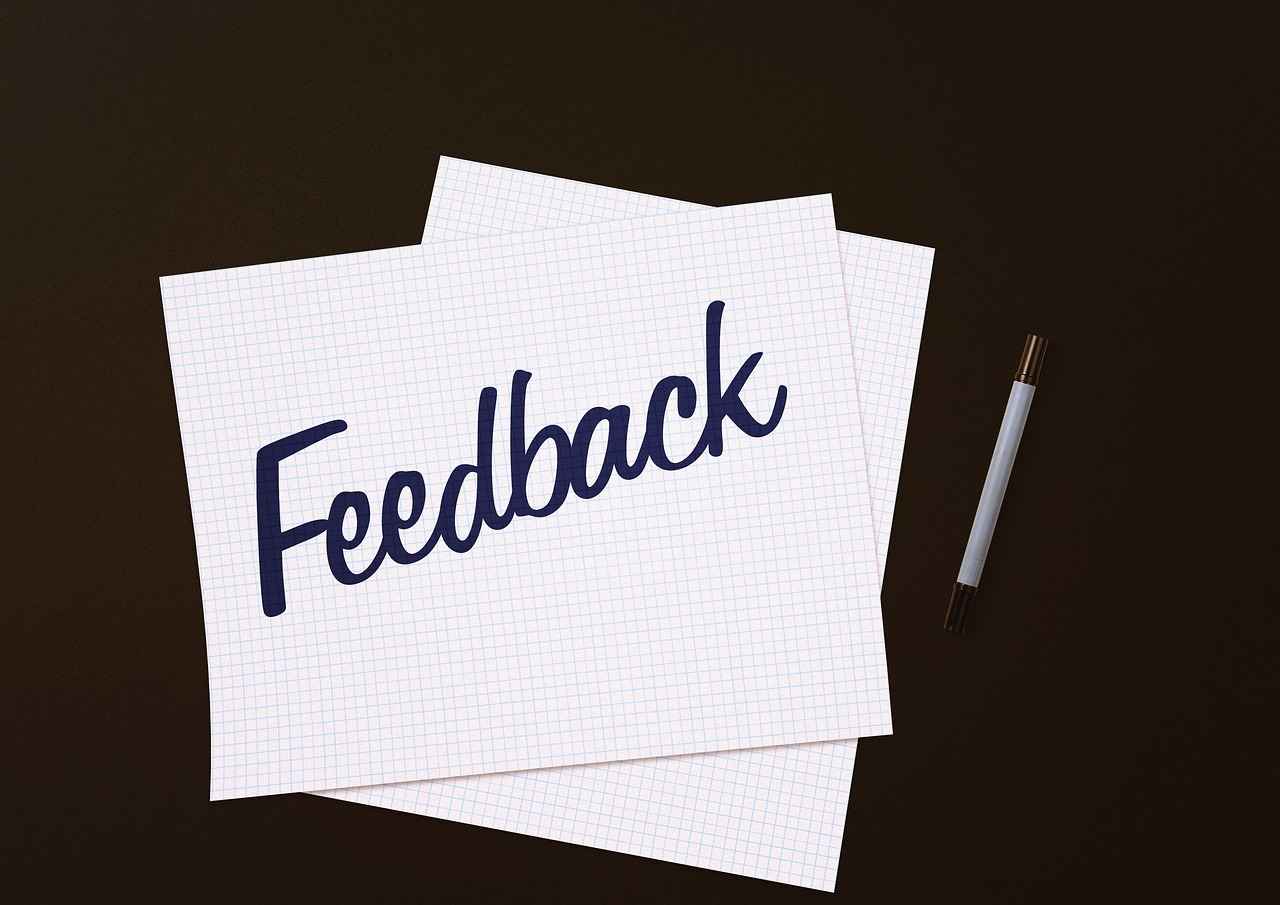
Medical Malpractice Claims
are a significant area of law that addresses the negligence of healthcare professionals. When a patient suffers harm due to the failure of a doctor, nurse, or other medical staff to provide adequate care, it can lead to devastating consequences. As a legal expert with over 30 years of experience, I can attest that navigating these complex cases requires not only a deep understanding of medical practices but also a keen legal strategy.
The first step in pursuing a medical malpractice claim is to establish that negligence occurred. This typically involves demonstrating that the healthcare provider deviated from the accepted standard of care, which can vary depending on the specific medical field. For instance, a surgeon is expected to adhere to certain protocols during surgery, while a general practitioner must follow established guidelines for diagnosis and treatment.
To effectively build your case, you should seek out a specialized attorney who has extensive experience in medical malpractice litigation. Here are some key factors to consider when searching for the right legal representation:
- Experience and Expertise: Look for attorneys who focus primarily on medical malpractice cases. They should have a proven track record of successful outcomes in similar claims.
- Medical Knowledge: A good malpractice attorney should possess a strong understanding of medical terminology and procedures. This knowledge will be crucial when evaluating your case and communicating with medical experts.
- Reputation: Research the attorney’s reputation within the legal community. Online reviews, testimonials, and peer recommendations can provide insight into their credibility and effectiveness.
- Consultation: Schedule a consultation to discuss your case. This initial meeting will help you gauge the attorney’s communication style, willingness to listen, and overall approach to your situation.
Additionally, it’s essential to be aware of potential red flags when hiring a medical malpractice attorney:
- High Pressure Tactics: Be cautious of attorneys who push you to sign contracts or make decisions quickly. A reputable lawyer will take the time to explain your options thoroughly.
- Lack of Transparency: If an attorney is not forthcoming about their fees, experience, or previous cases, it may indicate a lack of integrity.
- Limited Availability: Ensure that the attorney you choose is accessible and responsive. You should feel comfortable reaching out with questions or concerns throughout the legal process.
When you find a qualified attorney, they will typically begin by gathering all relevant medical records and evidence to support your claim. This may include expert witness testimonies from other medical professionals who can affirm that the care you received was substandard.
In many cases, medical malpractice claims can be settled out of court through negotiations with the healthcare provider’s insurance company. However, if a fair settlement cannot be reached, your attorney should be prepared to take your case to trial. This is where their experience and expertise will truly shine, as they present your case before a judge and jury.
In summary, pursuing a medical malpractice claim is a multifaceted process that requires the guidance of a skilled attorney. By taking the time to research and select the right legal professional, you can significantly enhance your chances of a successful outcome. Remember, the stakes are high, and having a knowledgeable advocate on your side can make all the difference in your pursuit of justice and compensation.
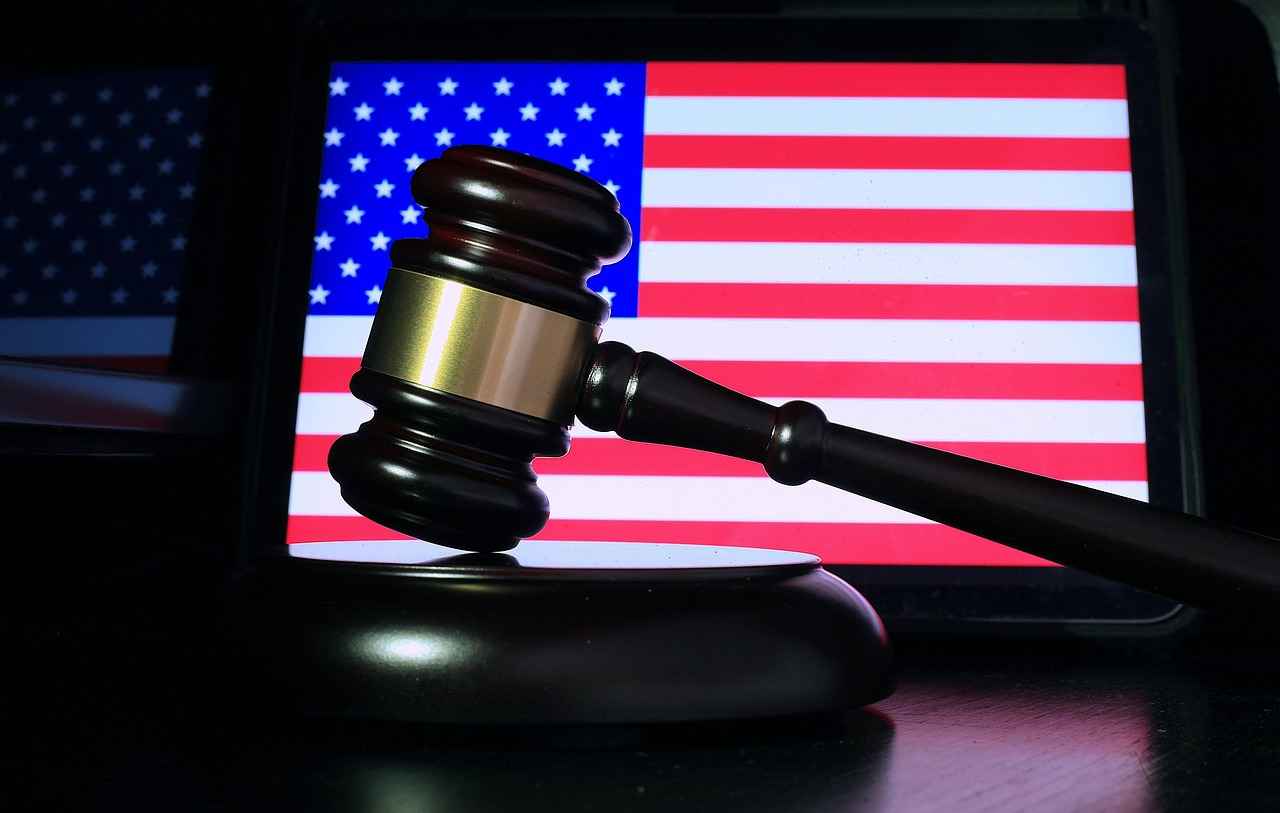
Breach of Contract Disputes
Breach of contract cases can arise in a multitude of contexts, ranging from business transactions to personal agreements. A contract is a legally binding agreement between two or more parties, and when one party fails to fulfill their obligations, it can lead to significant disputes. Understanding the nuances of contract law is essential for both parties involved. Therefore, identifying an attorney with experience in contract law is crucial for effective resolution.
When seeking legal representation for a breach of contract case, consider the following steps:
- Look for Specialized Experience: Not all attorneys have the same expertise. It’s important to find a lawyer who specializes in contract law and has a proven track record in handling breach of contract cases. This specialized knowledge will be invaluable in navigating the complexities of your specific situation.
- Check Credentials: Review the attorney’s educational background, bar admissions, and any additional certifications. Membership in professional organizations, such as the American Bar Association, can also indicate a commitment to staying updated in the field.
- Read Reviews and Testimonials: Online reviews and testimonials can provide insight into an attorney’s reputation and effectiveness. Look for feedback from past clients regarding their experiences, especially in similar cases.
- Consultation Meetings: Many attorneys offer free initial consultations. Use this opportunity to discuss your case and evaluate the attorney’s communication style, responsiveness, and understanding of your needs.
- Assess Their Approach: Different attorneys may have varying approaches to resolving disputes. Some may prefer negotiation and mediation, while others are more inclined to pursue litigation. Choose an attorney whose approach aligns with your goals.
- Transparency in Fees: Understand the fee structure before committing. Some attorneys charge hourly rates, while others may work on a contingency basis. Ensure that there are no hidden fees and that you are comfortable with the payment arrangement.
In major metropolitan areas like New York City, Los Angeles, and Chicago, the competition among attorneys can be intense. Utilize legal directories such as Avvo or FindLaw to search for qualified attorneys in your area. These platforms often provide filters to help you find lawyers based on their specialties, client ratings, and location.
Additionally, personal referrals can be a valuable resource. Ask friends, family, or colleagues if they can recommend a trusted attorney with experience in breach of contract cases. Trust is a key component in the attorney-client relationship, and personal recommendations can often lead to finding a reliable legal partner.
Finally, be wary of red flags when hiring an attorney. If an attorney guarantees a specific outcome or pressures you into making quick decisions, it may be a sign to look elsewhere. A reputable attorney will provide honest assessments and set realistic expectations regarding your case.
In summary, breach of contract disputes can be complex and require a knowledgeable attorney to navigate effectively. By taking the time to research and choose the right legal representation, you can enhance your chances of achieving a favorable resolution.

Property Disputes
are often complex legal matters that can arise from various issues related to real estate. These disputes may involve ownership issues, where two or more parties claim rights to a property, or boundary disputes, which occur when there is ambiguity about where one property ends and another begins. In either case, navigating these legal waters can be challenging without the assistance of a knowledgeable attorney.
When dealing with property disputes, it is essential to understand the different types of cases that can arise. For instance, ownership disputes can stem from unclear titles, inheritance issues, or disputes over property sales. Boundary disputes, on the other hand, often involve survey discrepancies or misunderstandings regarding property lines. In both situations, having an attorney who specializes in property law can significantly impact the outcome of your case.
To find the best attorney for your property dispute, consider the following steps:
- Research Local Attorneys: Begin by searching for attorneys in your area who specialize in property law. Websites like Avvo and FindLaw can provide valuable information about local legal professionals, including reviews and ratings.
- Check Credentials: Look for attorneys who are members of professional organizations such as the American Bar Association or local bar associations. These affiliations often indicate a commitment to ongoing education and adherence to ethical standards.
- Experience Matters: When consulting potential attorneys, inquire about their experience in handling property disputes specifically. Ask about their track record, case outcomes, and familiarity with local laws and regulations.
- Consultations: Many attorneys offer free initial consultations. Use this opportunity to discuss your case and gauge their understanding and approach to property disputes. Pay attention to how well they communicate and whether they take the time to answer your questions.
- Red Flags to Avoid: Be cautious of attorneys who promise guaranteed outcomes or seem more interested in their fees than in your case. Additionally, avoid those who lack a clear strategy for addressing your specific issues.
In conclusion, property disputes can be intricate and emotionally charged. Engaging a qualified attorney with expertise in this area can help you navigate the complexities of the legal system and work towards a favorable resolution. Remember to conduct thorough research, check credentials, and trust your instincts when selecting the right legal professional for your needs.

Landlord-Tenant Disputes
Landlord-tenant disputes are frequent occurrences in rental agreements, often stemming from misunderstandings or disagreements over lease terms, property conditions, and tenant rights. These disputes can escalate quickly, leading to legal action if not resolved promptly. To navigate these challenges effectively, it is essential to understand the common issues that arise and how to protect your rights as a tenant or landlord.
Common disputes include non-payment of rent, property maintenance issues, and eviction proceedings. Tenants may feel that their landlords are not fulfilling their obligations, such as making necessary repairs or providing a safe living environment. Conversely, landlords may be frustrated by tenants who fail to pay rent on time or violate lease agreements.
To find an attorney experienced in housing law, consider the following steps:
- Research Local Attorneys: Start by searching online for attorneys specializing in landlord-tenant law in your area. Websites like Avvo and FindLaw provide listings and reviews of legal professionals.
- Check Credentials: Look for attorneys with specific experience in housing law. Verify their credentials, including their education, years of practice, and any relevant certifications.
- Read Reviews: Client testimonials can offer insight into an attorney’s effectiveness and approach. Pay attention to feedback regarding communication, responsiveness, and case outcomes.
- Consultation: Schedule initial consultations with potential attorneys. Many offer free consultations, allowing you to discuss your case and gauge their expertise and compatibility.
When interviewing potential attorneys, ask about their experience with similar cases, their approach to resolving disputes, and their fee structure. It’s important to find someone who not only understands the law but also values communication and is willing to advocate for your best interests.
Additionally, be aware of red flags when selecting an attorney. Avoid those who:
- Promise guaranteed outcomes, as no attorney can assure a specific result.
- Pressure you into making quick decisions without fully explaining your options.
- Have a history of disciplinary actions or negative reviews.
In summary, landlord-tenant disputes can be complex and emotionally charged. By taking the time to find a qualified attorney who specializes in housing law, you can protect your rights and navigate these disputes more effectively.
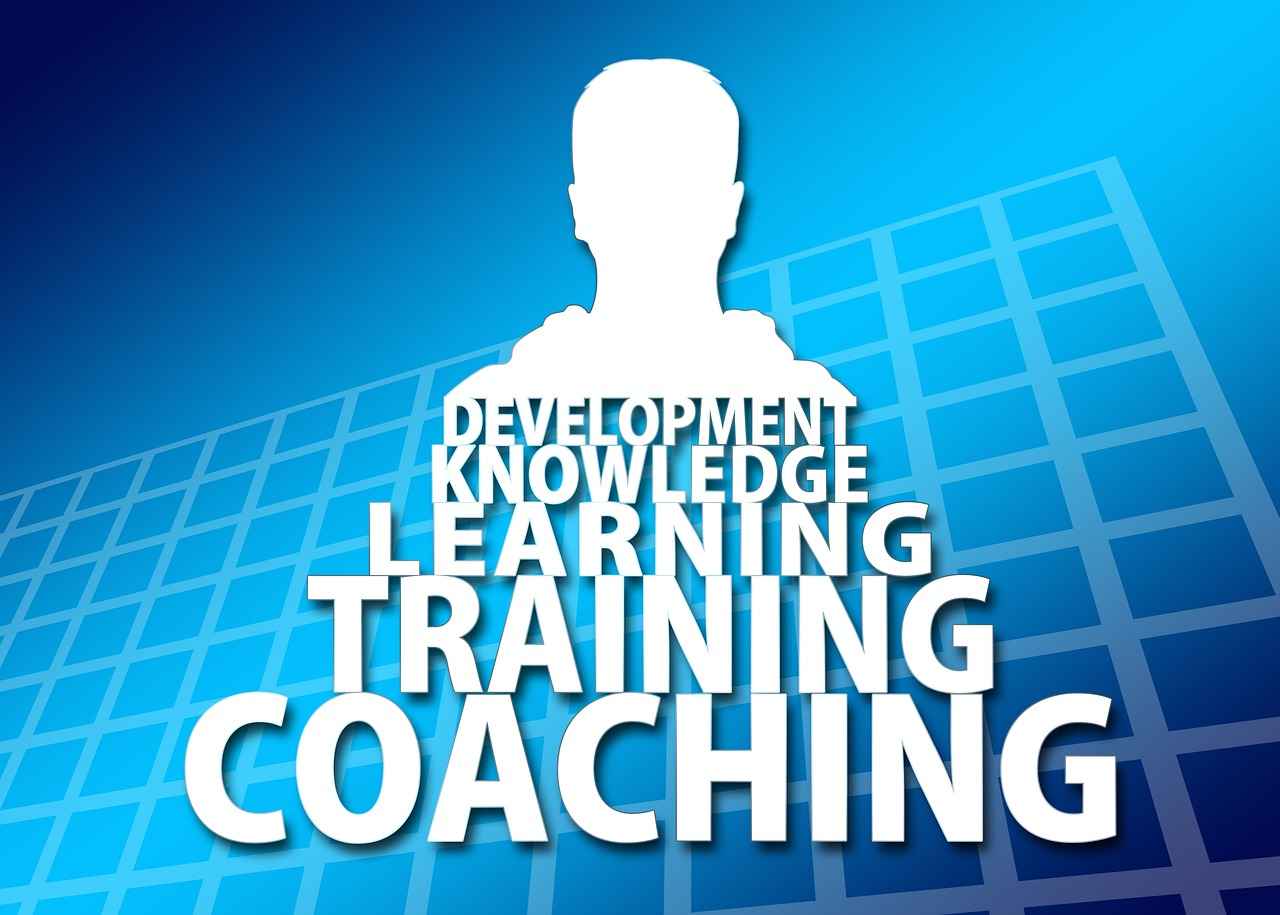
Defamation (Libel/Slander) Cases
Defamation cases are a critical area of law that deals with false statements made about an individual or entity that can cause significant harm to their reputation. These statements can take the form of libel (written defamation) or slander (spoken defamation). Understanding the nuances of defamation law is essential for anyone who believes they have been wronged in this manner, as the legal landscape can be quite complex.
To successfully pursue a defamation claim, the plaintiff must typically prove that the statement was false, damaging, and made without adequate research into its truthfulness. Additionally, public figures may need to demonstrate that the statement was made with actual malice, which means the speaker knew the statement was false or acted with reckless disregard for the truth.
When seeking legal representation for a defamation case, it is crucial to find an attorney who specializes in media law or defamation law. Here are some steps to help you identify the right attorney:
- Research Specialization: Look for lawyers who have a proven track record in handling defamation cases. Check their websites for case studies or testimonials from previous clients.
- Check Credentials: Ensure the attorney is licensed to practice in your state and has relevant experience. Membership in organizations such as the American Bar Association can also be a good indicator of professionalism.
- Consult Reviews: Online reviews and ratings on platforms like Avvo or Martindale-Hubbell can provide insight into an attorney’s reputation and effectiveness.
- Initial Consultation: Many attorneys offer free consultations. Use this opportunity to discuss your case and gauge the attorney’s understanding and approach to defamation law.
- Assess Communication: Choose an attorney who communicates clearly and promptly. Effective communication is key in legal matters, especially in sensitive cases like defamation.
Red flags to watch for include attorneys who make unrealistic promises about the outcome of your case or those who seem more interested in your financial situation than in your legal needs. A trustworthy attorney will provide a realistic assessment of your case and outline potential strategies.
In conclusion, navigating a defamation case requires not only a strong legal strategy but also the right legal representation. By taking the time to research and consult with qualified attorneys, individuals can better protect their reputations and seek justice in the face of false allegations.
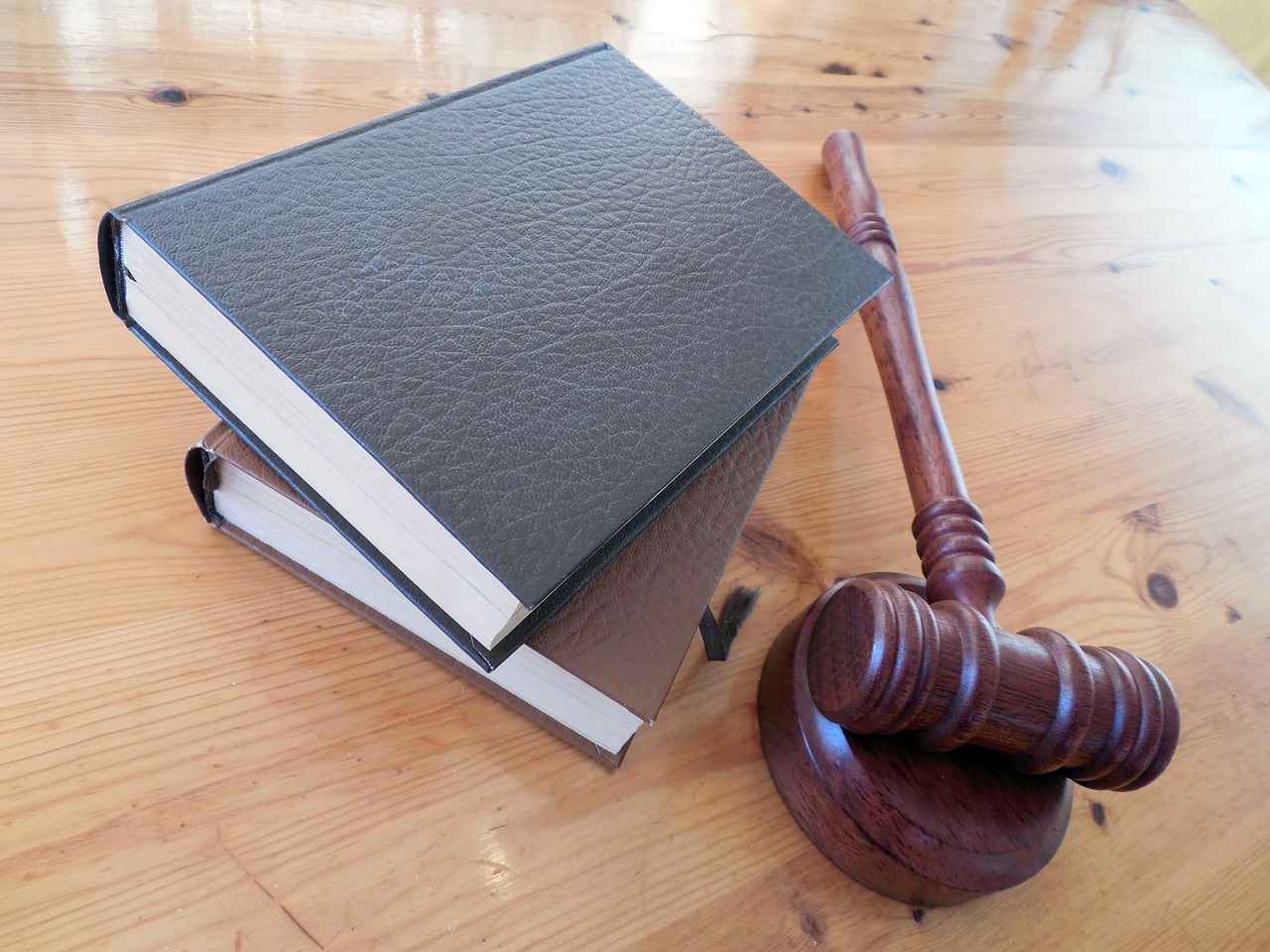
Employment Disputes
Employment disputes are a significant area of concern for both employees and employers, often leading to complex legal battles. These disputes can encompass a variety of issues including wrongful termination, discrimination, harassment, and retaliation. Understanding your rights and options is crucial in navigating these challenging situations.
When faced with an employment dispute, it is essential to consult a qualified employment lawyer who can provide you with the necessary guidance. Here, we will explore the types of employment disputes, the importance of legal representation, and how to find the right attorney for your needs.
- Wrongful Termination: This occurs when an employee is fired for illegal reasons, such as discrimination or retaliation for whistleblowing.
- Discrimination: Employees may face discrimination based on race, gender, age, religion, or disability, violating federal and state laws.
- Harassment: This includes unwanted behavior that creates a hostile work environment, often related to an employee’s protected characteristics.
- Retaliation: Employees who report illegal activities or file complaints may face adverse actions from their employers, which is unlawful.
Having a knowledgeable employment lawyer is crucial for several reasons:
- Understanding Your Rights: Employment laws are complex and vary by state. A lawyer will help you understand your rights and the laws applicable to your situation.
- Negotiation Skills: Lawyers can negotiate on your behalf, whether it’s for a settlement or during mediation, ensuring your interests are protected.
- Litigation Experience: If your case goes to court, having an attorney with litigation experience can significantly impact the outcome.
Finding a competent employment lawyer requires careful consideration. Here are some practical steps to guide you:
- Research: Start by searching online for employment lawyers in your area. Websites like Avvo and FindLaw can provide ratings and reviews.
- Check Credentials: Look for lawyers who specialize in employment law, have relevant experience, and are licensed to practice in your state.
- Consultation: Many lawyers offer free initial consultations. Use this opportunity to discuss your case and gauge their expertise.
- Ask Questions: Inquire about their experience with cases similar to yours, their approach to handling disputes, and their fee structure.
While searching for an employment lawyer, be cautious of the following red flags:
- Lack of Communication: If a lawyer is unresponsive during initial consultations, it may indicate poor communication skills.
- High Pressure Tactics: Be wary of attorneys who pressure you to sign contracts or make quick decisions without fully understanding your case.
- Negative Reviews: Consistently negative feedback from former clients can be a warning sign of an attorney’s reliability and effectiveness.
In summary, employment disputes can be intricate and emotionally taxing. Engaging a qualified employment lawyer can help you navigate these challenges effectively. By understanding the types of disputes, recognizing the importance of legal representation, and knowing how to find the right attorney, you can better protect your rights and interests in the workplace.

Product Liability Cases
Product liability refers to the legal responsibility of manufacturers, distributors, and retailers for injuries caused by defective products. These defects can arise from design flaws, manufacturing errors, or inadequate warnings and instructions. When consumers suffer injuries due to such defects, they may seek compensation through legal action. Understanding the intricacies of product liability law is essential for anyone considering a claim.
To enhance your chances of success in a product liability case, it is crucial to identify an attorney with experience in consumer safety and product liability law. Here are some practical steps to help you find the right legal representation:
- Research Specialization: Look for attorneys who specialize in product liability cases. Their expertise in this area can significantly impact the outcome of your case.
- Check Credentials: Verify the attorney’s education, bar association membership, and any additional certifications related to product liability or consumer protection.
- Experience Matters: Seek attorneys with a proven track record in handling product liability cases, particularly those similar to yours. Ask about their past case outcomes and settlements.
- Read Reviews: Browse online reviews and testimonials from former clients. This can provide insight into the attorney’s communication style, responsiveness, and success rate.
- Consultation Availability: Many attorneys offer free initial consultations. Use this opportunity to discuss your case and assess whether the attorney is a good fit for your needs.
When meeting with potential attorneys, ask specific questions to gauge their expertise:
- What is your experience with product liability cases?
- Can you provide examples of similar cases you have handled?
- What strategies do you employ to prove liability?
- How do you handle case expenses and fees?
Additionally, be wary of red flags when selecting an attorney:
- Lack of Specialization: Attorneys who do not specialize in product liability may not be familiar with the nuances of the law.
- High Pressure Sales Tactics: If an attorney pressures you to sign a contract immediately, it may indicate a lack of professionalism.
- Poor Communication: An attorney who is difficult to reach or does not respond promptly to inquiries may not prioritize your case.
In major metropolitan areas like New York City, Los Angeles, and Chicago, you can utilize various platforms to find qualified attorneys. Websites like Avvo and FindLaw provide directories of lawyers categorized by practice area, along with ratings and reviews. Local bar associations often have referral services that can connect you with reputable attorneys in your area.
Moreover, consider seeking recommendations from friends, family, or colleagues who may have had similar legal experiences. Personal referrals can provide valuable insights and help you find trustworthy representation.
In conclusion, navigating a product liability case can be complex and challenging. However, with the right attorney by your side, you can increase your chances of obtaining the compensation you deserve. By conducting thorough research, asking the right questions, and being aware of potential red flags, you can find a qualified attorney who will advocate for your rights in the pursuit of justice.
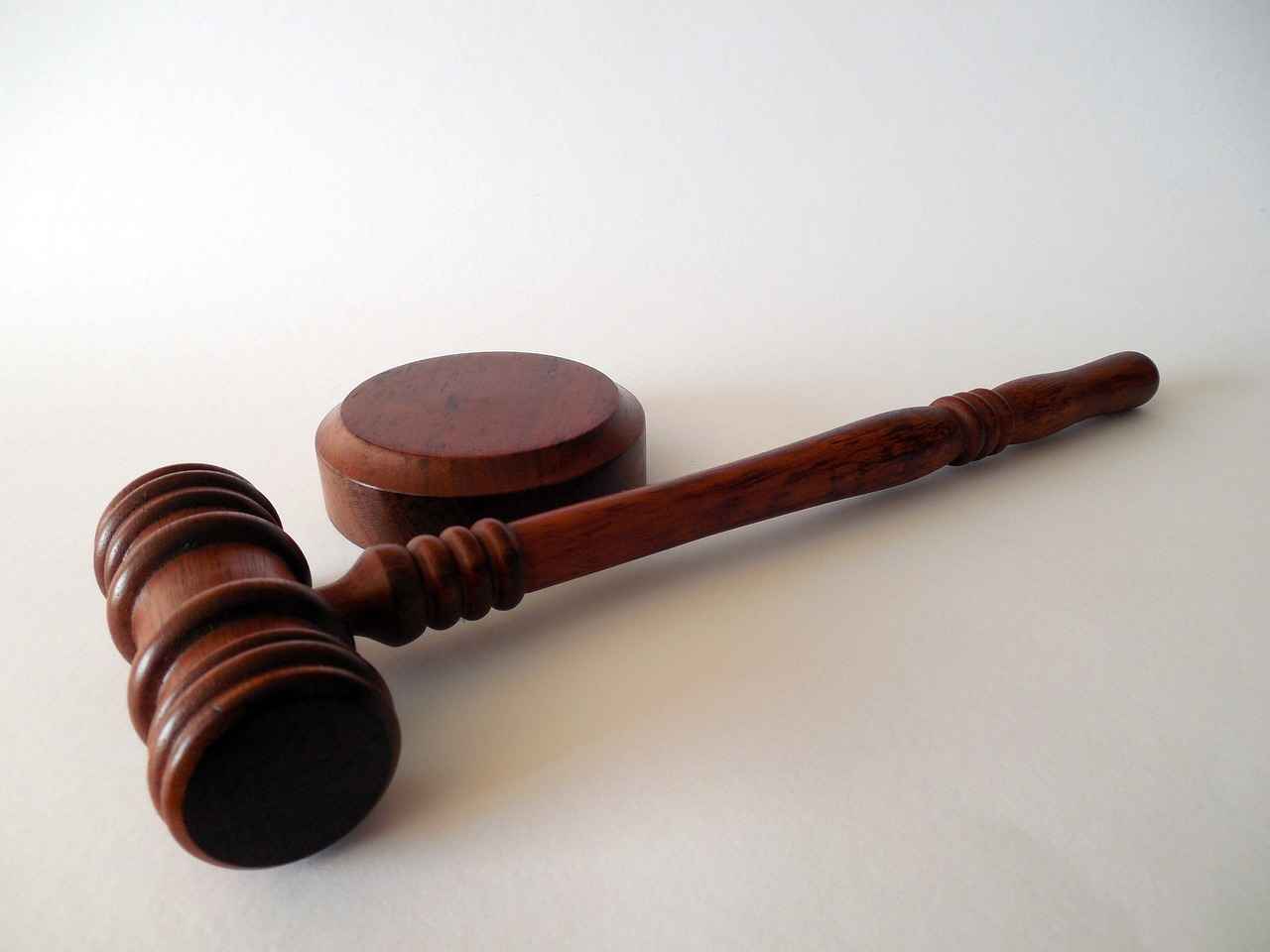
Wrongful Death Claims
are a tragic consequence of negligence or intentional acts that lead to the untimely death of an individual. These claims are often filed by the surviving family members of the deceased, seeking justice and compensation for their loss. The emotional burden of losing a loved one is immense, and navigating the legal landscape can be overwhelming. Therefore, finding a compassionate and experienced attorney is crucial for families to effectively pursue their claims.
When considering a wrongful death claim, it is essential to understand the elements that constitute such a case. Typically, the plaintiff must prove that the defendant had a duty of care towards the deceased, that this duty was breached, and that the breach directly caused the death. Additionally, the family must demonstrate the damages they have suffered as a result of the loss, which can include not only economic losses but also emotional distress.
Finding the right attorney to handle a wrongful death claim involves several key steps:
- Research and Referrals: Begin by seeking referrals from friends, family, or other legal professionals. Personal recommendations can lead you to trustworthy attorneys who specialize in wrongful death cases.
- Online Reviews and Ratings: Utilize platforms like Avvo, Martindale-Hubbell, or Google Reviews to read feedback from previous clients. Look for attorneys with high ratings and positive testimonials specifically related to wrongful death claims.
- Check Credentials: Ensure the attorney has the necessary qualifications, including a license to practice law in your state and experience in handling wrongful death cases. Membership in professional organizations, such as the American Association for Justice, can also be a good indicator of their expertise.
- Initial Consultation: Most attorneys offer a free initial consultation. Use this opportunity to discuss your case, assess their understanding of wrongful death law, and determine if you feel comfortable working with them.
- Contingency Fees: Many wrongful death attorneys work on a contingency fee basis, meaning they only get paid if you win your case. This arrangement can alleviate some financial pressure during a difficult time.
It is also important to be aware of red flags when selecting an attorney. Be cautious of lawyers who make unrealistic promises or guarantees regarding the outcome of your case. Additionally, if an attorney appears disinterested or fails to communicate effectively, it may be a sign that they are not the right fit for your needs.
In major cities like New York, Los Angeles, and Chicago, the legal market is competitive, and you may have a wide array of options. However, take the time to thoroughly vet potential attorneys to ensure you find one who not only has the necessary expertise but also shows genuine empathy for your situation. A skilled attorney can help you navigate the complex legal process and advocate for your rights, ultimately allowing you to focus on healing and remembrance.

Class Action Lawsuits
represent a powerful legal tool that allows a group of individuals to collectively seek justice for common grievances. These lawsuits are particularly effective when numerous people have been harmed by the same defendant, such as in cases of defective products, environmental disasters, or widespread fraud. The collective nature of class actions can significantly reduce the costs associated with litigation for each individual, making it a viable option for those who might not otherwise pursue legal action due to financial constraints.
In the United States, class action lawsuits are governed by both federal and state laws, which can vary significantly. Therefore, it is crucial to engage a lawyer who is not only experienced in mass torts but also well-versed in the specific regulations that apply in your jurisdiction. An attorney specializing in class actions can navigate the complexities involved, from the initial filing to the final resolution, ensuring that the rights of all class members are protected.
When searching for a qualified attorney for a class action lawsuit, consider the following steps:
- Research Their Experience: Look for attorneys who have successfully handled class action cases in the past. Their track record can provide insights into their ability to manage complex litigation effectively.
- Check Credentials: Verify their education, bar admissions, and any specialized certifications in class action or mass tort litigation. Membership in professional organizations can also indicate commitment to their field.
- Read Reviews and Testimonials: Client feedback can be invaluable. Look for reviews on legal directories, law firm websites, and social media platforms to gauge the attorney’s reputation.
- Initial Consultation: Take advantage of free consultations to assess the attorney’s communication style, understanding of your case, and overall approach to litigation. This meeting can help you determine if they are the right fit for your needs.
- Discuss Fees: Class action attorneys often operate on a contingency fee basis, meaning they only get paid if you win. Ensure you understand their fee structure and any additional costs associated with the case.
It’s essential to be aware of red flags when hiring a class action attorney. Be cautious of lawyers who promise quick results or guarantee outcomes, as these can be unrealistic in complex legal matters. Additionally, avoid attorneys who lack transparency about their fees or those who seem unwilling to provide references or case studies of past successes.
In major metropolitan areas like New York City, Los Angeles, and Chicago, the competition among attorneys can be fierce. Utilize online legal platforms and directories to compare attorneys in your area. Websites like Avvo, Martindale-Hubbell, and FindLaw offer comprehensive listings and reviews that can assist you in making an informed decision.
In conclusion, class action lawsuits provide a vital mechanism for individuals seeking justice against larger entities. By following these guidelines and conducting thorough research, you can find a qualified attorney who will advocate for your rights and help you navigate the complexities of the legal system effectively.
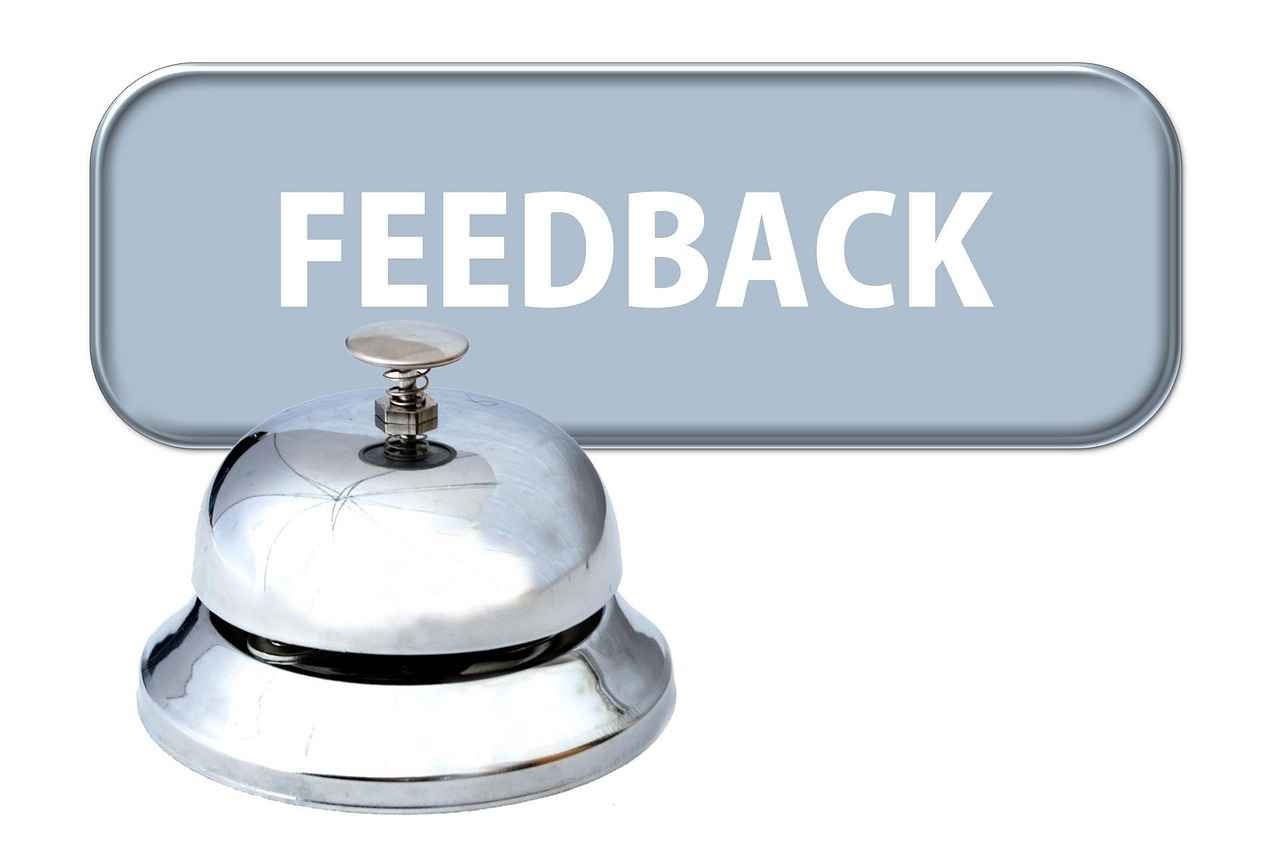
Assault and Battery Cases
Assault and battery cases are serious legal matters that involve intentional harm inflicted upon another person. Understanding the nuances of these cases is essential for both victims and defendants, as the implications can be severe, including potential imprisonment, fines, and a lasting criminal record. When facing such allegations, it is crucial to have an attorney who specializes in criminal defense to navigate the complexities of the law and ensure that your rights are protected.
In the context of assault and battery, it is important to differentiate between the two terms. Assault refers to the act of threatening or attempting to cause physical harm to someone, while battery involves the actual physical act of causing harm. Both can occur in various scenarios, such as domestic disputes, bar fights, or even altercations in public spaces. The legal definitions and consequences can vary significantly from state to state.
When seeking an attorney for assault and battery cases, individuals should consider the following factors:
- Experience: Look for an attorney who has extensive experience specifically in handling assault and battery cases. Their familiarity with local laws and courtroom procedures can make a significant difference in the outcome of your case.
- Track Record: Investigate the attorney’s success rate in similar cases. A proven history of favorable outcomes can provide assurance of their capability.
- Reputation: Seek recommendations from trusted sources or read online reviews. An attorney with a solid reputation in the community is often more reliable.
- Communication Skills: An effective attorney should communicate clearly and keep you informed about the progress of your case. They should be approachable and willing to answer any questions you may have.
- Fees and Costs: Discuss the attorney’s fee structure upfront. Understanding whether they charge a flat fee, hourly rate, or work on a contingency basis is vital for budgeting your legal expenses.
Additionally, it is wise to be aware of red flags when selecting an attorney. If an attorney guarantees a specific outcome, pressures you into making quick decisions, or lacks transparency about their fees, these could be signs to reconsider your choice.
In metropolitan areas like New York City, Los Angeles, and Chicago, the competition among attorneys can be fierce. Therefore, utilizing online platforms such as Avvo, FindLaw, or Martindale-Hubbell can help you compare attorneys based on their experience, client reviews, and practice areas. These platforms often provide valuable insights into an attorney’s background and client satisfaction, making it easier to make an informed decision.
In conclusion, navigating assault and battery cases requires a comprehensive understanding of the legal landscape and the implications of such charges. Engaging a skilled criminal defense attorney is essential for protecting your rights and ensuring a fair legal process. By considering the factors mentioned above and utilizing available resources, individuals can find the right legal representation to effectively handle their case.

Drug Offenses
represent a significant area of concern within the legal system, encompassing a wide range of charges from simple possession to serious trafficking allegations. These offenses can carry severe penalties, including hefty fines and lengthy prison sentences. Therefore, it is crucial for individuals facing such charges to seek the assistance of a knowledgeable criminal defense attorney who can effectively navigate the complexities of drug-related laws.
When searching for an attorney to handle drug offenses, it is essential to consider several factors:
- Experience and Specialization: Look for an attorney who specializes in drug-related cases. Their familiarity with local laws and previous case outcomes can provide invaluable insights into potential defenses.
- Track Record: Research the attorney’s success rate in handling similar cases. A proven history of favorable outcomes can indicate their capability to manage your situation effectively.
- Legal Strategy: During initial consultations, inquire about the attorney’s approach to drug offenses. A good attorney should be able to articulate a clear strategy tailored to your specific circumstances.
- Communication Skills: Effective communication is key in legal matters. Choose an attorney who listens to your concerns and explains legal jargon in a way that you can understand.
- Reputation: Online reviews and testimonials can provide insights into an attorney’s reputation. Look for feedback from former clients to gauge their experiences.
In major metropolitan areas such as New York City, Los Angeles, and Chicago, the competition among attorneys can be intense. Here are some practical tips for finding the right legal representation:
- Utilize Legal Directories: Websites like Avvo and FindLaw offer comprehensive listings of attorneys by practice area and location. These platforms often include ratings and reviews that can help you make an informed choice.
- Consult Local Bar Associations: Many state and local bar associations maintain referral services that can connect you with qualified attorneys specializing in drug offenses.
- Seek Referrals: If you know someone who has faced similar charges, ask for their recommendations. Personal referrals can often lead to trustworthy legal representation.
- Schedule Consultations: Many attorneys offer free initial consultations. Use this opportunity to ask questions, assess their knowledge, and determine if you feel comfortable working with them.
It is also important to be aware of red flags when hiring a criminal defense attorney for drug offenses:
- Lack of Communication: If an attorney is difficult to reach or does not respond promptly to your inquiries, this may indicate a lack of commitment to your case.
- Unrealistic Promises: Be cautious of attorneys who guarantee specific outcomes. The legal process is unpredictable, and no attorney can assure a particular result.
- High Pressure Tactics: If an attorney pressures you to sign a contract or make a decision quickly, this is a warning sign. A reputable attorney will give you the time you need to make an informed choice.
In conclusion, facing drug charges can be a daunting experience, but with the right legal support, individuals can navigate the complexities of the legal system. By taking the time to research and find a qualified criminal defense attorney, you can enhance your chances of achieving a favorable outcome in your case.

Theft and Burglary Charges
are serious legal matters that can lead to significant consequences, including hefty fines, imprisonment, and a permanent criminal record. Understanding the nuances of these charges is essential for anyone facing such allegations. A competent attorney can help formulate a defense strategy tailored to your situation, ensuring that your rights are protected throughout the legal process.
When dealing with theft or burglary charges, it is important to recognize the differences between the two:
- Theft generally refers to the unlawful taking of someone else’s property with the intent to permanently deprive them of it.
- Burglary involves entering a building or structure unlawfully with the intent to commit a crime, typically theft, once inside.
Both charges can carry severe penalties, depending on the circumstances, such as prior convictions, the value of the stolen property, and whether the crime involved violence or threats. Therefore, securing the right legal representation is crucial.
Here are some expert tips on finding the best attorney for theft and burglary cases:
- Look for Specialization: Seek attorneys who specialize in criminal defense, particularly those with experience in theft and burglary cases. Specialized lawyers are more likely to understand the nuances of the law and have established relationships with local courts and prosecutors.
- Check Credentials: Verify the attorney’s qualifications, including their educational background, years of practice, and any relevant certifications. Membership in professional organizations, such as the National Association of Criminal Defense Lawyers (NACDL), can also be a good indicator of expertise.
- Read Reviews: Online reviews and testimonials can provide insight into a lawyer’s reputation and client satisfaction. Websites like Avvo and Martindale-Hubbell can help you gauge the attorney’s standing in the legal community.
- Schedule Consultations: Many attorneys offer free initial consultations. Use this opportunity to discuss your case, evaluate their communication style, and determine if you feel comfortable working with them.
- Assess Their Strategy: During the consultation, ask the attorney about their approach to handling cases like yours. A knowledgeable attorney should be able to outline a clear defense strategy tailored to your specific situation.
- Understand Fees: Clarify the attorney’s fee structure upfront. Whether they charge a flat fee or hourly rate, understanding the costs involved will help you avoid unpleasant surprises later.
In addition to these tips, be aware of red flags when hiring an attorney:
- Lack of Communication: If an attorney is difficult to reach or unresponsive during the initial consultation, it may indicate future communication issues.
- Pressure Tactics: Be wary of attorneys who pressure you to make quick decisions or sign contracts without giving you time to think.
- Unrealistic Promises: Avoid attorneys who guarantee specific outcomes or make unrealistic promises regarding your case.
In conclusion, theft and burglary charges can have far-reaching effects on your life. By taking the time to find a qualified attorney with the right experience and approach, you can better navigate the complexities of your case and work towards a favorable outcome.
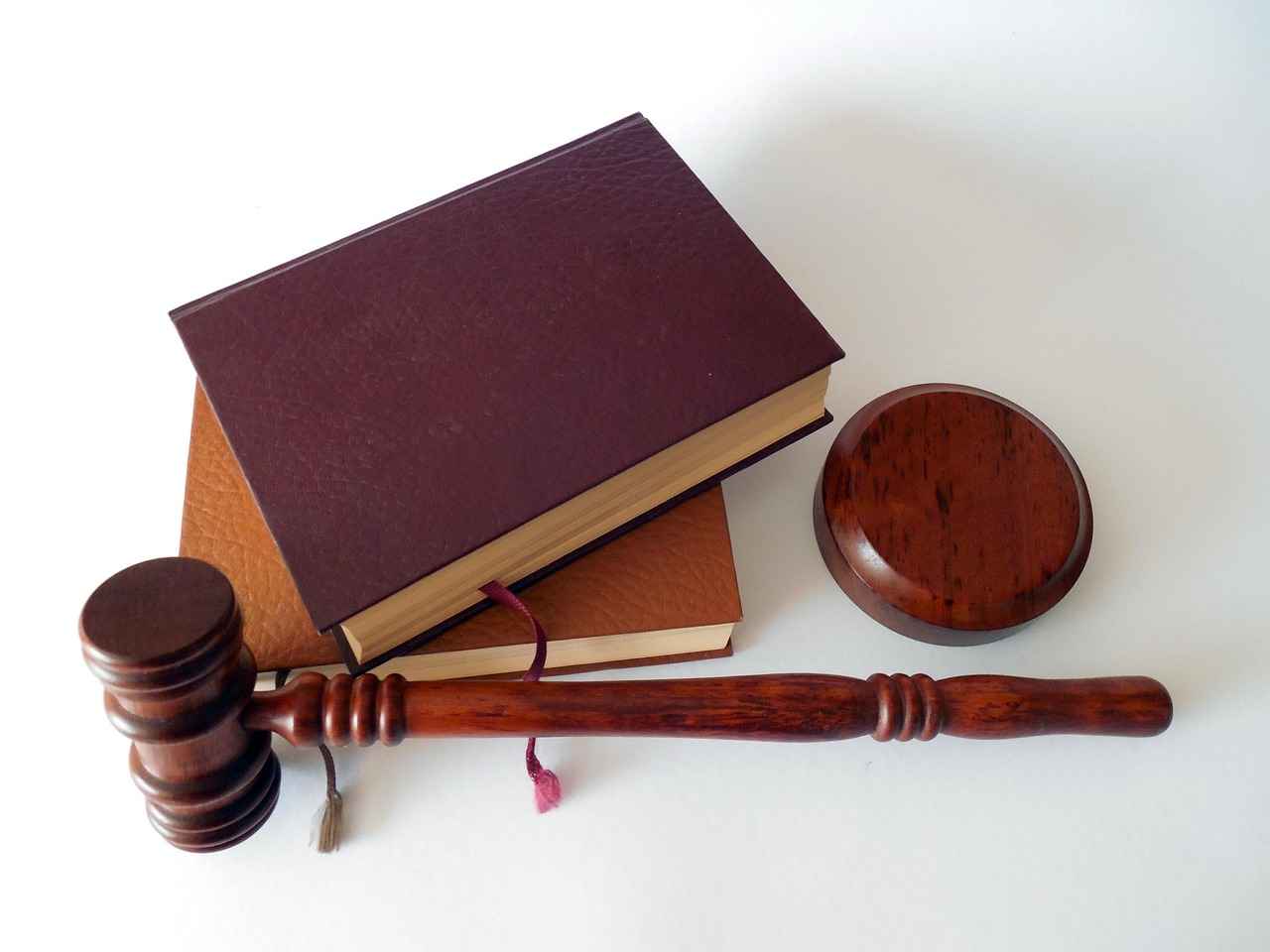
Fraud and Embezzlement Cases
Fraud and embezzlement are serious white-collar crimes that involve deceitful practices aimed at securing financial gain through dishonest means. These offenses can lead to severe legal consequences, including hefty fines and imprisonment. Understanding the complexities surrounding these cases is crucial for anyone facing such allegations or seeking to defend themselves against them.
Fraud may encompass a range of activities, including identity theft, insurance fraud, and credit card fraud. Embezzlement, on the other hand, specifically refers to the misappropriation of funds placed in one’s trust, often occurring in corporate or financial settings. The legal ramifications are significant, making it essential to engage a qualified attorney with expertise in white-collar crime.
When searching for a lawyer to handle fraud or embezzlement cases, consider the following steps:
- Specialization: Look for attorneys who specialize in white-collar crime. Their experience in navigating the intricacies of financial fraud cases is invaluable.
- Credentials: Check for credentials such as membership in professional organizations, publications, or speaking engagements related to fraud and embezzlement law.
- Client Reviews: Read reviews and testimonials from past clients. Positive feedback can indicate a lawyer’s effectiveness and reliability.
- Consultation: Schedule initial consultations with multiple attorneys. This allows you to gauge their understanding of your case and their approach to defense.
- Red Flags: Be wary of attorneys who make unrealistic promises about outcomes or those who lack transparency regarding their fees and processes.
In metropolitan areas like New York City, Los Angeles, and Chicago, the competition among attorneys can be fierce. Utilize platforms such as Avvo, FindLaw, and Martindale-Hubbell to identify qualified lawyers in your area. These platforms provide detailed profiles, including ratings and areas of expertise, making it easier to compare potential candidates.
Additionally, consider seeking referrals from trusted sources, such as friends, family, or business associates who have had positive experiences with legal counsel. Personal recommendations can often lead to finding a lawyer who not only understands the law but also aligns with your values and needs.
In summary, navigating fraud and embezzlement cases requires the guidance of a knowledgeable attorney who can provide a robust defense. By focusing on specialization, credentials, and client reviews, individuals can find the right legal representation to safeguard their interests and achieve the best possible outcome.
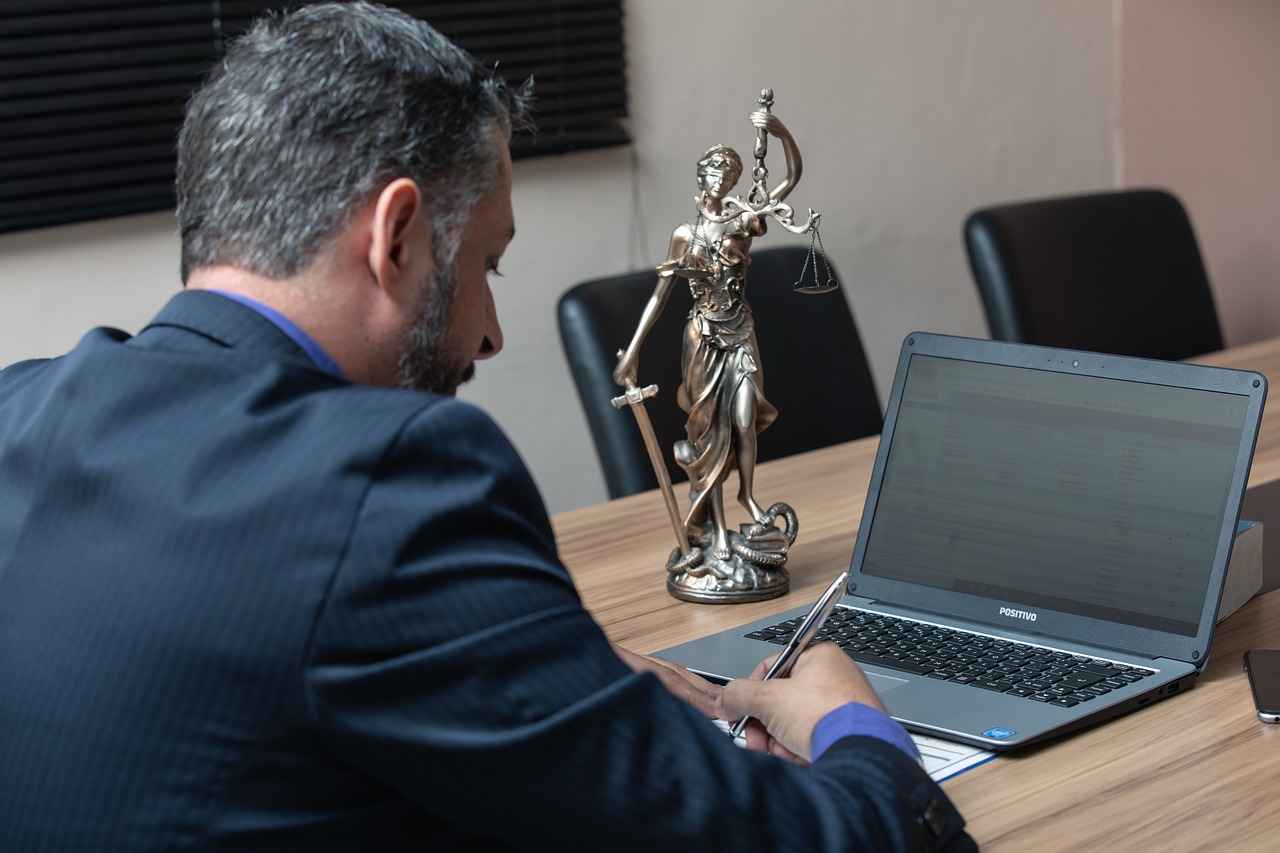
Murder and Homicide Cases
represent some of the most serious legal charges individuals can face. The implications of these accusations are profound, often resulting in severe penalties, including lengthy prison sentences or even the death penalty in some jurisdictions. Given the gravity of these charges, it is essential to have a skilled criminal defense attorney by your side to navigate the complexities of the legal system and advocate for your rights.
When facing such serious allegations, the first step is to seek legal representation from an attorney who specializes in criminal defense, particularly in murder and homicide cases. Here are some critical factors to consider when searching for the right attorney:
- Experience and Expertise: Look for an attorney with substantial experience in handling murder and homicide cases. Their familiarity with the legal landscape and courtroom procedures can significantly impact the outcome of your trial.
- Track Record: Investigate the attorney’s past case results. A successful track record in similar cases can provide confidence in their abilities to defend you effectively.
- Reputation: Research online reviews and testimonials from former clients. A reputable attorney will have positive feedback and a strong standing within the legal community.
- Communication Skills: Your attorney should be able to communicate complex legal concepts in a way that you can understand. They should also be responsive to your questions and concerns throughout the legal process.
- Legal Strategy: During your initial consultation, inquire about the attorney’s approach to your case. A skilled lawyer will have a clear strategy for defending against the charges and be able to articulate potential defenses.
Finding the right attorney can be challenging, especially in major metropolitan areas where legal professionals are abundant. Here are some practical methods for locating qualified defense attorneys in cities like New York City, Los Angeles, and Chicago:
- Referrals: Ask friends, family, or colleagues if they know any reputable criminal defense attorneys. Personal recommendations can lead to trustworthy options.
- Online Legal Directories: Utilize platforms like Avvo, FindLaw, or Martindale-Hubbell to search for attorneys specializing in murder and homicide cases. These directories often include client reviews and ratings.
- State Bar Associations: Check with your state bar association for a list of licensed attorneys in your area. They can provide information about an attorney’s credentials and any disciplinary actions.
- Initial Consultations: Many attorneys offer free consultations. Use this opportunity to assess their expertise and see if you feel comfortable with their approach.
While searching for a defense attorney, be mindful of red flags that may indicate a less-than-reputable lawyer:
- Lack of Transparency: If an attorney is unwilling to discuss their fees or the potential strategies for your case, consider it a warning sign.
- Pressure Tactics: Be cautious of attorneys who push you to make quick decisions or sign contracts without giving you adequate time to think.
- Poor Communication: If you struggle to get in touch with an attorney during the initial consultation, it may reflect their communication style throughout your case.
In conclusion, the stakes are incredibly high in murder and homicide cases, making it essential to choose an attorney who is not only qualified but also someone you trust. By considering the factors outlined above and being diligent in your search, you can find a legal professional who will fight for your rights and work tirelessly to ensure you receive a fair trial.

DUI/DWI Offenses
Driving Under the Influence (DUI) and Driving While Intoxicated (DWI) offenses are serious legal matters that can lead to severe penalties, including hefty fines, license suspension, and even jail time. In the United States, the legal repercussions vary significantly from state to state, and the consequences can be particularly harsh in metropolitan areas where law enforcement is vigilant about impaired driving. If you find yourself facing such charges, it is crucial to secure a knowledgeable attorney who specializes in DUI/DWI cases to help mitigate the consequences.
Understanding the Legal Landscape
DUI/DWI laws are designed to deter individuals from driving under the influence of alcohol or drugs. In many states, the legal blood alcohol concentration (BAC) limit is 0.08% for drivers over 21. However, penalties can be more severe for higher BAC levels or for repeat offenders. Additionally, some states have zero tolerance laws for underage drivers, meaning any detectable alcohol can lead to charges.
Why You Need a Specialized Attorney
Securing a specialized DUI/DWI attorney can significantly impact the outcome of your case. These attorneys understand the complexities of DUI laws and are familiar with local court systems. They can provide invaluable assistance in several ways:
- Case Evaluation: A skilled attorney will review the details of your arrest, including whether proper procedures were followed by law enforcement.
- Plea Bargaining: Many DUI cases can be negotiated for lesser charges or alternative sentencing options, such as treatment programs.
- Trial Representation: If your case goes to trial, having an experienced lawyer can make a significant difference in presenting your defense.
How to Find the Right Attorney
When searching for a qualified DUI/DWI attorney, consider the following steps:
- Research Online: Use platforms like Avvo, Martindale-Hubbell, and FindLaw to find attorneys with high ratings and reviews.
- Check Credentials: Look for attorneys who specialize in DUI/DWI cases and have a proven track record of success.
- Consultations: Many attorneys offer free consultations. Use this opportunity to ask about their experience, approach, and fees.
- Referrals: Ask friends or family for recommendations, especially if they have faced similar legal issues.
Red Flags to Avoid
While searching for an attorney, be cautious of the following red flags:
- Guarantees of Outcome: No attorney can guarantee a specific outcome in a DUI case.
- Lack of Communication: If an attorney is unresponsive during initial consultations, they may not prioritize your case.
- High Fees without Transparency: Be wary of attorneys who do not provide clear information about their fees and billing practices.
Conclusion
DUI/DWI offenses are serious matters that require expert legal guidance. By taking the time to find a knowledgeable attorney, you can improve your chances of achieving a favorable outcome. Remember to conduct thorough research, ask the right questions, and trust your instincts when selecting legal representation.

Domestic Violence Cases
are one of the most sensitive areas of law, requiring not only legal expertise but also a deep understanding of the emotional and psychological complexities involved. Victims often face a multitude of challenges, including fear, trauma, and uncertainty about their rights. Therefore, it is essential to find an attorney who is not only knowledgeable in family law but also compassionate and supportive.
When searching for a qualified attorney to handle a domestic violence case, consider the following steps:
- Research Specialization: Look for attorneys who specialize in family law, particularly those with a focus on domestic violence cases. They will have the necessary experience and understanding of the legal framework surrounding such cases.
- Check Credentials: Verify the attorney’s credentials, including their education, years of practice, and any additional certifications in family law or domestic violence advocacy.
- Read Reviews: Online reviews and testimonials can provide insight into the attorney’s reputation and how they handle cases. Websites like Avvo or Yelp can be useful resources.
- Consultation: Schedule a consultation to discuss your situation. This initial meeting is crucial for assessing the attorney’s approach and whether you feel comfortable with them. Pay attention to how they listen to your concerns and the questions they ask.
- Ask About Support Services: Inquire whether the attorney can connect you with support services, such as counseling or shelters, as these resources can be invaluable during such a difficult time.
- Evaluate Communication: Effective communication is key in legal matters. Ensure that the attorney is responsive and willing to explain legal concepts in a way that you can understand.
- Understand Fees: Discuss the attorney’s fee structure upfront. Some may offer sliding scale fees based on income, while others might work on a retainer or hourly basis. Make sure there are no hidden costs.
It is also important to be aware of red flags when choosing an attorney for a domestic violence case:
- Lack of Experience: Beware of attorneys who claim to handle many types of law but lack specific experience in domestic violence cases.
- Poor Communication: If an attorney is difficult to reach or does not return calls promptly, it may indicate a lack of commitment to your case.
- Pressure Tactics: Be cautious of attorneys who pressure you to make quick decisions or sign contracts without fully understanding them.
- Negative Reviews: While one negative review may not be a dealbreaker, a pattern of poor reviews is a significant warning sign.
In conclusion, navigating a domestic violence case requires not only finding a qualified attorney but also ensuring that you feel safe and supported throughout the legal process. By following these guidelines, you can increase your chances of finding the right legal advocate who will fight for your rights and well-being.
Frequently Asked Questions
- What should I look for when hiring a personal injury attorney?
When hiring a personal injury attorney, consider their experience with similar cases, their reputation, and their success rate. It’s also essential to ensure they offer a free consultation to discuss your case without any financial obligation.
- How can I tell if I have a valid medical malpractice claim?
If you believe a healthcare professional’s negligence has harmed you, consult a specialized attorney. They can evaluate your situation based on medical records and expert opinions to determine if you have a valid claim.
- What are the common causes of breach of contract disputes?
Breach of contract disputes often arise from misunderstandings about terms, failure to deliver goods or services, or not meeting deadlines. Consulting an attorney can help clarify your rights and options.
- How can an attorney assist with landlord-tenant disputes?
An attorney can help you understand your lease agreement, represent you in negotiations, and provide guidance on your legal rights. They can also help in court if necessary, ensuring your interests are protected.
- What should I do if I’m facing criminal charges?
If you’re facing criminal charges, it’s crucial to hire a knowledgeable criminal defense attorney immediately. They can help you navigate the legal system, build a defense, and protect your rights throughout the process.













